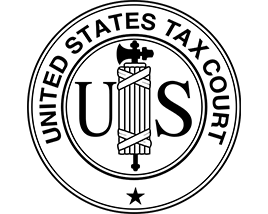Probate Attorney in Arlington Heights, IL
Estate Settlement is simply the legal process by which property of a deceased person is transferred to that person’s heirs or beneficiaries. The Law Office of Robert Thomas concentrates on the intricacies of probate matters and serves the estate of the deceased and its family with the utmost respect and sensitivity. Please call Robert Thomas today for a free consultation that is supportive and understanding.
What Is “Probate”
Probate is the court supervised judicial process by which the Last Will and Testament of the deceased person is authenticated and accepted as a true and valid public document by the court. The property of the deceased is then distributed according to the instructions of the Will. During the probate proceedings a court case will be opened dealing specifically with:
- Deciding if a will is valid,
- Locating and determining the value of the decedent’s assets,
- Transferring the property of the deceased person to the heirs or beneficiaries according to the wished set forth in the Will; and
- Taking care of the financial responsibilities of the person who died.
In a probate case, an executor (if there is a will) or an administrator (if there is no will) is appointed by the court as the personal representative to collect the assets, pay the debts, and then distribute the remainder of the estate to the beneficiaries (those who have the legal right to inherit), all under the supervision of the court. The entire case can remain in court for a period in excess of six (6) months, and sometimes longer if there are disputes.
Probate Definitions
- Bond: A document guaranteeing that a certain amount of money will be paid to the victim if a person occupying a position of trust does not carry out his legal and ethical responsibilities. If an executor, trustee or guardian who is bonded wrongfully deprives a beneficiary of his/her property, the bonding company will replace it, up the limits of the bond.
- Age Of Majority: The age when a person acquires all the rights and responsibilities of being an adult. In most states, the age is 18.
- Administrator: A person (sometimes a family member) appointed by the court to administer the estate of a person who died without a will.
- Codicil: An amendment or supplement to an existing will. When admitted to probate, it forms a part of the will.
- Contestant: A person who contests the eligibility of a will to be admitted to probate.
- Contested: To defend against an adverse claim made in a court by a plaintiff, petitioner or a prosecutor; to challenge a position asserted in a judicial proceeding, as to contest the probate of a will.
- Creditor: A person (or institution) to whom money is owed.
- Creditor’s Claim: A document filed in court wherein a creditor demands payment for debt owed by the decedent.
- Decedent: A person who has died.
- Deed: A written legal document that evidences ownership of a particular parcel of property and describes the piece of property and outlines its boundaries. The seller of a property transfers ownership by delivering the deed to the buyer in exchange for an agreed upon sum of money.
- Estate: A person’s total possessions (assets), including money, jewelry, securities, land, etc. These assets are managed by a person subject to a court order.
- Executor: The person named in a will to carry out the directions as set forth in the will. This person is the personal representative of the decedent’s estate.
- Fiduciary Duty: A legal obligation to act in the best interest of another party. For instance, a corporation’s board member has a fiduciary duty to the shareholders, a trustee has a fiduciary duty to the trust’s beneficiaries, and an attorney has a fiduciary duty to a client.
- Heir: A person who would naturally inherit property through a will, or from another who died without leaving a will.
- Legatee: Also known as beneficiary. Person named in a will to receive property.
- Letters Of Administration: This is a one page document issued by the probate court naming the administrator as the official representative of the estate in probate.
- Letters Of Office: This is a one page document issued by the probate court naming the executor as the official representative of the estate in probate.
- Letters Testamentary: This is a one page document that refers to both types of letters interchangeably.
- Intestate: A person died without a will.
- Personal Property: All items, both tangible and intangible, that are not real property. Anything owned by a person that can be moved such as money, securities, jewelry, etc.
- Personal Representative: A person or corporation who administers an estate in probate.
- Real Property: Anything affixed to the ground.
- Residuary Estate: Also known as residue of the estate. Portion of the estate left after bequests of specific items of property are made. Often the largest portion of the estate.
- Testate: A person died with a will.
- Will: A legal document directing the disposal of the testator’s property after their death. A will is revocable during the maker’s lifetime.
- Will Contest: A proceeding peculiar to probate for the determination of questions of construction of a will or whether there is or is not a will. Any kind of litigated controversy concerning the eligibility of an instrument to probate as distinguished from validity of the contents of the will. (Will contests are in rem proceedings in that the contest is brought against the thing, the will, as opposed to in personal proceedings, which are brought against a person.)
Determining If You Need to Go to Probate Court
You may or may not need to go through probate court to obtain title to property belonging to a deceased loved one. Determining whether you must go to probate court depends on many issues, such as the amount of money involved, the type of property involved, and who is claiming the property.
In addition, deciding if probate court is needed may also depend on the how the property is owned (the type of title ownership) or if there is some type of contract with beneficiaries. For example:
Type of Title Ownership
Sometimes all or some of a deceased person’s property passes directly to the beneficiaries because of how the property is owned. So whether the property was owned in joint tenancy, if it was a bank account owned by several people, or a bank account that is transferred to someone when the owner dies, then, in general, when the owner of the property dies, the property goes to the survivor and probate in not necessary. Keep in mind that even in these cases, the survivor may have to take legal steps to clarify his or her ownership of the transferred property.
Type of Contract
Sometimes all or some of a deceased person’s property does not need to go through probate to pass to the beneficiaries because of the type of contract with named beneficiaries. Examples of this are life insurance policies that pay benefits to someone else other than the deceased person’s estate, retirement benefits, death benefits, and trusts.
Last Will and Testament (Also Called A Will)
A Will is a written and legally executed document by the testator (deceased person) who wants his or her directions known and implemented regarding the distribution of his or her real property and personal assets after death (This is sometimes called “Estate Settlement”). While the testator is alive, the Will has no power or authority. (See our Estate Planning page for more information on Wills.)
The Personal Representative
One of the rights of the testator of a Will is to appoint and name a mentally competent adult person or entity as the Personal Representative or Executor to carry out the instructions of the deceased and to do what is necessary to settle the deceased’s probate estate. If there in no one named in the will who is able or willing to act as the personal representative, then the court will appoint a representative.
Death Without a Will
If the deceased person has not left a valid Will, they are declared to have died “Intestate” and thus they have failed to designate a personal representative. In this circumstance, the probate court in which the decedent domiciled (lived) will assign an Administrator. In most cases the spouse or adult children are named the Administrator.
Transferring Non-Probate Property
In some circumstances, property can be non-probate property. This means that the property is held either as “tenants by the entireties” or “joint tenants with right of survivorship” and can be transferred to the surviving tenant by filing a certified copy of the death certificate with the clerk of the circuit court. This can also apply to the transfer of title and registration of an automobile. . (See our Estate Planning page for more information on non-probate property.)
Trust and Trustees (see our Estate Planning page for more information on Trusts)
A Living Trust is a trust established by the decedent (grantor) during his or her life-time and provides for the disposition, or distribution, of the trust assets after his or her death. Assets in a trust will be handled by the stated trustee in the governing document of the trust. The trustee of the trust may be a different entity and may have different duties than the Personal Representative named in the Will. Assets held in trust are non-probate assets.
Executor’s Fiduciary Duties
The personal representative of the estate, the executor of the will, or trustee of the trust has a fiduciary duty to carry out the wishes of the decedent. In a fiduciary relationship, the administrator, executor, or trustee owes certain duties and responsibilities to the decedent. While acting as executor, administrator or trustee, these administrators are subject to various laws, regulations, standards and guidelines including (but not limited to):
- The provisions of the will, retirement plan or trust document;
- The common law of trusts (or “accepted fiduciary standards”), which is a body of principles adopted by state courts over the years;
- State and federal statutory law and regulation;
- Rulings and orders from the local court of jurisdiction (probate court or other relevant court having jurisdiction over such matters); and
- Rules and regulations promulgated by an institution’s state or federal regulatory agency, which has further codified or established fiduciary principles as they apply specifically to financial institutions.
Significant executor fiduciary duties are to:
- Take possession and maintain control of fiduciary assets;
- Keep fiduciary assets separate and distinct from all other assets;
- Maintain clear and accurate accounts and records;
- In a timely manner provide information to beneficiaries;
- Exercise the same care and skill in administering the trust as a person of ordinary prudence would exercise in dealing with his or her own property.
- Carry out the “duty of loyalty” which means to administer the trust solely in the interest of the beneficiary.
- The fiduciary must never put him or herself in a position where personal interests might conflict with those of the trust.
Related Topics
- 6 Steps in the Probate Process
- Selling Real Estate in Probate
- Contested Probate Proceedings
- Guardianship of an Elderly or Disabled Person
Other Practice Areas
- Guardianship
- Family Law
- Divorce Law
- IRS and Tax Collection
- Estate Planning







